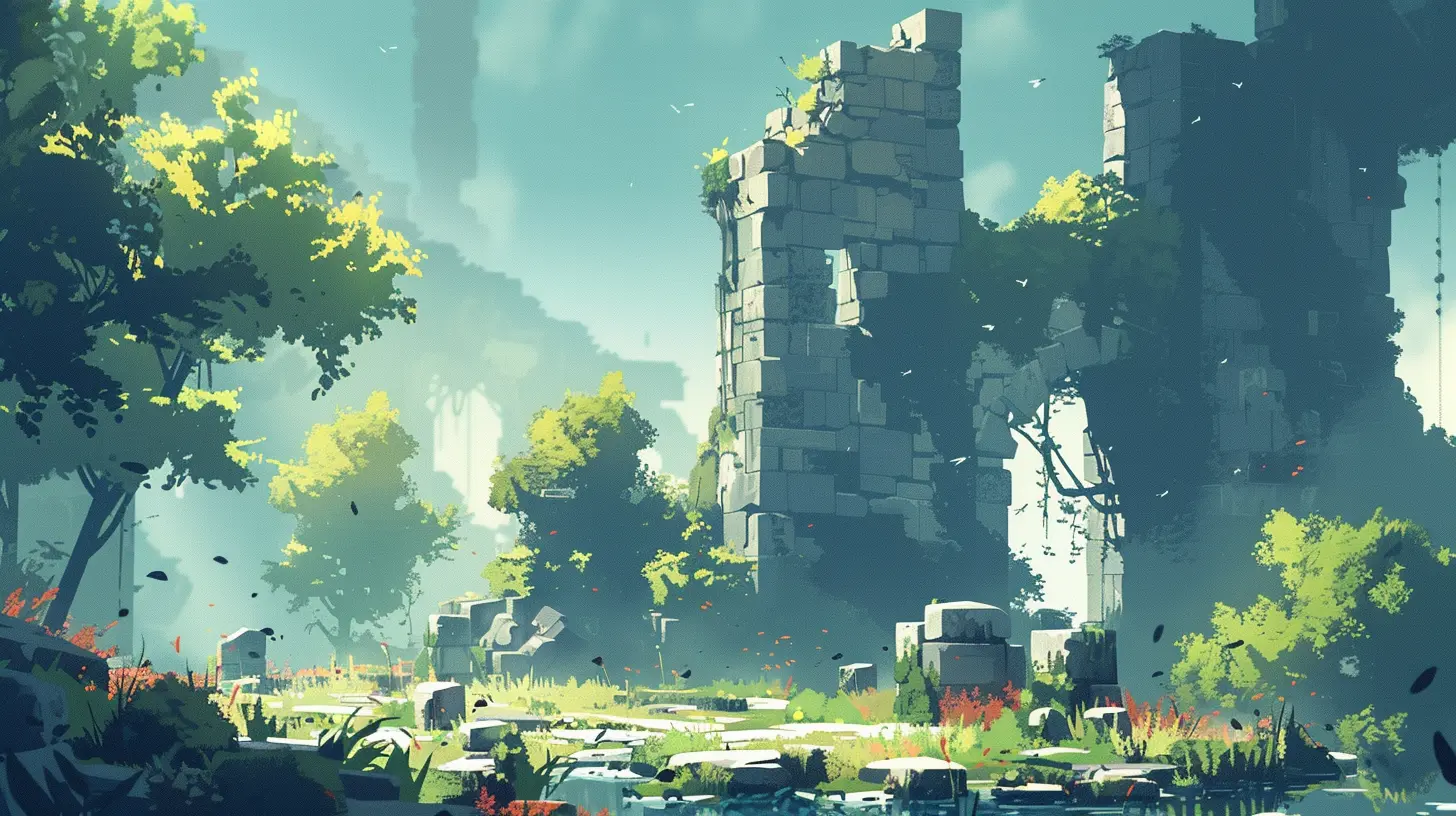Beta Testing for Indie Games: What You Need to Know
11 November 2025
Beta testing might sound like a techy buzzword that only big studios toss around, but if you’re an indie dev—or even just thinking about dipping your toes into game dev waters—understanding beta testing is non-negotiable. It can be the make-or-break stage for your indie game masterpiece. So, if you've got a project cooking and you're gearing up to slap that “Beta” tag on it, this guide's just for you.
Let’s talk beta testing—what it means, how to do it right, and why it’s one of the most crucial steps in your development journey.
What is Beta Testing, Anyway?
Okay, before we dive all the way in: what exactly is beta testing?In the indie game world, beta testing is the stage where your game is technically playable but not quite perfect. It’s out of your hands (literally) and into the eager fingers of real players. Beta testing comes just after the alpha phase—which is more internal and buggy than a summer picnic.
Think of it this way: Alpha is like baking your cake. Beta is letting someone take a bite before you ice it to make sure it doesn’t taste like cardboard.
Why Beta Testing Matters for Indie Devs
Unlike AAA studios, indie developers don’t swim in oceans of cash or have access to massive QA teams. You’re often running solo or with a small team, doing everything from coding to marketing. That means you're way more likely to miss bugs or overlook player experience hiccups.Here’s why beta testing can’t be skipped:
- Real Feedback from Real Players: You get to see how non-devs react to your game.
- Bug Detection: Players notice oddities you’ve grown blind to.
- Balance Tweaks: Is that boss battle actually fun? Or just ridiculously hard?
- Community Building: Beta testers often become your game’s early fanbase.
- Hype Generation: People love being in on something early—and they talk about it.
Still thinking of skipping beta? Don’t. Just… don’t.
Types of Beta Testing: Open vs. Closed
You might hear people throwing around terms like "closed beta" or "open beta." Here’s what they mean:1. Closed Beta
This is a limited-access test. You pick a handful of players—maybe friends, community members, or whoever signs up on your site. Closed beta is low-risk and lets you keep the chaos controlled.Best for: Early beta stages when your game still needs refining.
2. Open Beta
Here, anyone can join. This usually happens when you’re closer to launch and want stress testing, wider feedback, and more exposure.Best for: Final polishing and marketing push.
When is the Right Time to Launch a Beta?
Timing is everything.Too early, and you'll spend more time explaining bugs than fixing them. Too late, and you’ve missed your shot at critical feedback.
Here’s a quick checklist to help:
- ✅ Core gameplay is complete.
- ✅ Major features are implemented.
- ✅ It's stable enough that it won’t crash every five minutes.
- ✅ You’ve tested internally already (alpha phase).
- ✅ You’re ready to listen and improve.
If you checked most of those off, congrats—you’re probably ready for beta!
How to Find Beta Testers for Indie Games
This is where many indie devs panic. "How do I even find beta testers without a massive following?" Good news: you don’t need to go viral.Try These Places:
- Reddit: Subreddits like r/playmygame, r/IndieDev, or r/gaming are gold mines.- Discord Servers: Join or create one for your game and invite testers.
- Social Media: Your Twitter (X), Instagram, or TikTok following—even small—can help.
- Indie Game Communities: Sites like itch.io and Indie DB attract players looking to test new games.
- Email Lists: If you’ve been collecting emails from a devlog or website, now’s the time to send that call.
Tip: Create a signup form (Google Forms or Typeform works great) to gather interested testers.
Setting Expectations: What Beta Testers Need to Know
Don’t just throw your game file at testers and hope for the best. You gotta guide them a bit.Here’s what you should tell them:
- What kind of feedback you’re looking for (bugs, balance, UI issues?)
- How to report bugs (Google Form? Discord channel?)
- What systems you're focusing on (combat? inventory? storytelling?)
- Will their saves carry over? (Usually not)
Also, keep it casual and friendly. You're not running a Fortune 500 company—so write like a human, not a robot.
Collecting Feedback That Actually Helps
Everyone has opinions. But not all feedback is useful.Instead of asking general questions like “Did you like the game?”, dive deeper:
- Were there any confusing parts?
- Did the controls feel intuitive?
- Were there any moments you got stuck or frustrated?
- What was the most fun moment?
- Did any bugs break the experience?
Use surveys for structure, but keep your ear to the ground in community chats and forums. Casual comments often reveal more than formal surveys.
Pro tip: Keep track of recurring feedback. If 10 people complain about the same thing, you’ve got a real issue.
Managing Your Beta Community
Whether you’ve got 10 testers or 1,000, you’ll want to keep things organized.Create a Communication Hub
A Discord server works wonders. Create channels for:- Bug reports
- Suggestions
- Announcements
- General chat
Be Present
Check in regularly. Respond to feedback. Even a simple “Thanks, I’ll look into that!” goes a long way.Reward Your Testers
They’re helping you out big time. Say thanks with:- Free copies on release
- Tester credits in the game
- Exclusive items or cosmetics
It doesn't have to be flashy—but a little appreciation builds loyalty.
Interpreting and Acting on Feedback
More feedback isn't always better—it’s about actionable feedback.Sort it out:
- Critical bugs: Game-breaking issues? Fix these first.
- Gameplay issues: Balance, difficulty, or UI complaints? Prioritize based on frequency.
- Suggestions: Nice-to-haves, but don’t go changing your vision every time someone says “Add multiplayer.”
Remember, not all feedback deserves action, but all of it deserves to be heard. Keep your game’s core identity in mind when making changes.
Common Mistakes to Avoid in Beta Testing
Beta testing isn’t just "release now, fix later." There’s a method to the madness. Here are some pitfalls you’ll want to dodge:- Launching too early: A game full of bugs won't get helpful feedback.
- Ignoring negative feedback: The hard-to-hear stuff is usually what you need most.
- Not setting clear instructions: Confused testers = useless feedback.
- Failing to follow up: A silent dev is an abandoned dev. Keep those testers in the loop.
- Burning out: Beta testing can get overwhelming. Don’t try to fix everything in one night.
What Comes After Beta?
So you’ve survived beta. Great! But it’s not just about squashing bugs and saying “done.”Here’s what to focus on next:
- Final polish and visual tweaks
- Marketing ramp-up: trailers, social media, press kits
- Preparing for launch (Steam, itch.io, consoles, etc.)
- Thanking and retaining your tester community
And hey—don’t forget to breathe. You’re almost at the finish line.
Final Thoughts
Beta testing isn’t just a phase—it’s a conversation between you and your future players. For indie devs, it’s the ultimate gut-check for whether your game is actually fun outside of your brain.It’s not always easy, and yeah, sometimes it stings. But every bit of feedback brings you one step closer to releasing something truly awesome.
So, gear up, open the gates to your beta world, and let players in. You’ll be amazed at what you learn—and how much better your game can become.
You’ve got this.
all images in this post were generated using AI tools
Category:
Beta TestingAuthor:

Lucy Ross
Discussion
rate this article
2 comments
Sorin Chavez
Essential for indie success.
November 12, 2025 at 6:00 AM

Lucy Ross
Absolutely! Beta testing is crucial for refining gameplay and building a loyal player base.
Aubrey Chapman
Great article! Beta testing is crucial for indie developers to refine their games. Incorporating player feedback can significantly enhance gameplay and fix bugs. Consider creating a structured feedback form for testers to streamline the process. Engaging with your community can also build excitement ahead of the official launch. Happy developing!
November 11, 2025 at 4:16 AM

Lucy Ross
Thank you for the insightful comment! I completely agree—structured feedback and community engagement are key to refining indie games. Happy testing!


